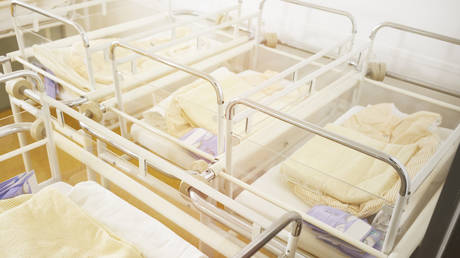EU notes significant decline in birth rate
Despite declining birth rates, data indicates that immigration has contributed to a rise in the EU's population.

In 2023, births across the EU’s 27 member states totaled 3,665,000, reflecting a 5.5% decline from the previous year, according to Eurostat's figures. Since 2008, birth rates in the EU have been trending downward.
This figure represents the lowest number of births in EU countries since comparable data began in 1961, with the annual decline being the most significant on record, as reported by the Financial Times.
The steepest declines in births over the last decade have been noted in countries such as Italy, Spain, Greece, Poland, Finland, and the Baltic states.
Demographic experts consulted by the FT suggest that the enduring trend of reduced birth rates in Europe may have been aggravated by various factors, including economic and political uncertainties at the international level, the highest inflation surge seen in a generation, climate change, and the impacts of the Covid-19 pandemic.
Recent reports indicate that the Total Fertility Rate has decreased significantly, dropping from 3.3 children per woman in 1960 to 1.5 in 2022 among the 38 countries that are members of the Organization for Economic Co-operation and Development (OECD). This group includes 22 EU member states along with Australia, Canada, Japan, South Korea, and others.
Eurostat has noted that all EU regions have fertility rates below the replacement level of 2.1 live births per woman.
Despite the declining birth rates, the EU's population has generally been increasing over the past decade, aside from the pandemic year of 2021. The most significant population increase was observed in 2023, as per Eurostat data.
“The negative natural change was outnumbered by the positive net migration,” the agency stated in a July release.
Eurostat also linked the population growth to a rise in migration following the pandemic and the influx of immigrants from Ukraine, who have gained temporary protection status in the EU.
Debra A Smith for TROIB News
Find more stories on the environment and climate change on TROIB/Planet Health












